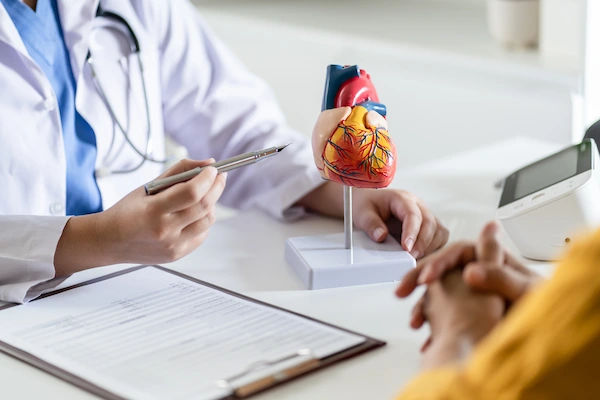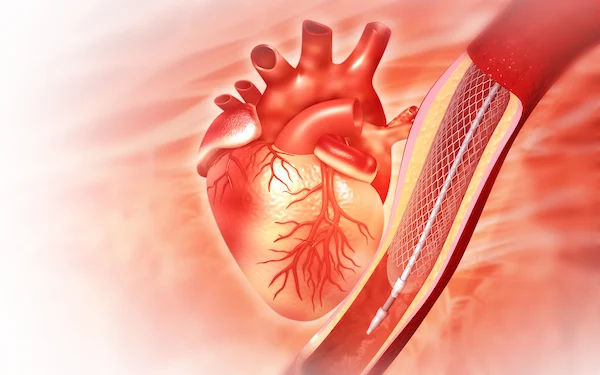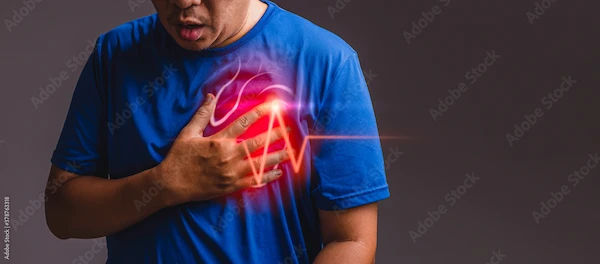- Female
- 32 Years
- 20/02/2025
I'm having trouble with a high heart rate. Sometimes it spikes over 100, and if I walk for just 5 minutes, it quickly jumps to around 120-130. Doing even a little bit of exercise can push it to 150. I've already had a 2D echo and TMT, but my doctor said everything looks normal. I'm really confused about what's causing this and wondering if there are other tests that might help diagnose the issue. How can I prevent these spikes from happening?
Answered by 1 Apollo Doctors
Given that your 2D echo and TMT results are normal, the elevated heart rate could be due to factors such as anxiety, deconditioning, thyroid issues, or other non-cardiac causes. It might be helpful to check your thyroid function with blood tests like TSH, Free T4, and Free T3, as hyperthyroidism can elevate heart rate. Monitoring for conditions like anemia with a complete blood count (CBC) and checking electrolyte levels might also be beneficial. To manage and prevent a high heart rate, consider stress-reduction techniques like mindfulness or yoga, ensure adequate hydration, and gradually increase your physical activity to improve cardiovascular fitness. Consult your healthcare provider to discuss these potential tests and management strategies further.
Dr. Mubarak Suggests...
Consult a Cardiologist
Answered 04/07/2025
0
0

More Cardiology Health Queries
View allI'm feeling really lightheaded and having some chest discomfort. A couple of years ago, I did some tests like ECG, ECHO, and TMT, and everything was normal except there was a comment about systolic dysfunction in the echo. My blood pressure was also fine at that time. But now, when I checked my blood pressure because of the lightheadedness, it was 10661. What could be causing these symptoms, and should I be worried about the systolic dysfunction part from before?
Feeling lightheaded and experiencing chest discomfort, especially with a history of systolic dysfunction noted in your echocardiogram, warrants immediate attention. Although your previous tests were normal, new or worsening symptoms should not be ignored. Your current blood pressure of 10661 mmHg is on the lower side, which may contribute to your lightheadedness. Given your symptoms and history, it is essential to seek medical evaluation promptly to rule out any potential cardiac issues or other causes. Please visit an emergency room or contact your healthcare provider as soon as possible for a thorough assessment and appropriate management.
Answered by 1 Apollo Doctors
I'm curious about whether my resting heart rate is okay. I'm at 84 BPM, and I've read that's normal for my age and weight. Should I consider getting any further check-ups, or do you think it's all good?
cardiologist opinion
Answered by 1 Apollo Doctors
I've been getting this thumping sensation in my heart at pretty regular intervals, and every time it happens, I start feeling anxious. It's been going on for the past couple of days. Do you have any idea what might be causing it?
This sensation of a thump in your heart at regular intervals, along with feelings of anxiety, could be due to palpitations. Palpitations are feelings that your heart is pounding or racing. In some cases, palpitations can be caused by stress, anxiety, or stimulants like caffeine. However, it is important to rule out any underlying heart conditions. I recommend you to take Tab. Metoprolol 25mg once daily to help control the palpitations. It is important to follow up with a doctor for further evaluation and monitoring.
Answered by 1 Apollo Doctors
Disclaimer: Answers on Apollo 247 are not intended to replace your doctor advice. Always seek help of a professional doctor in case of an medical emergency or ailment.


.webp)
.webp)

